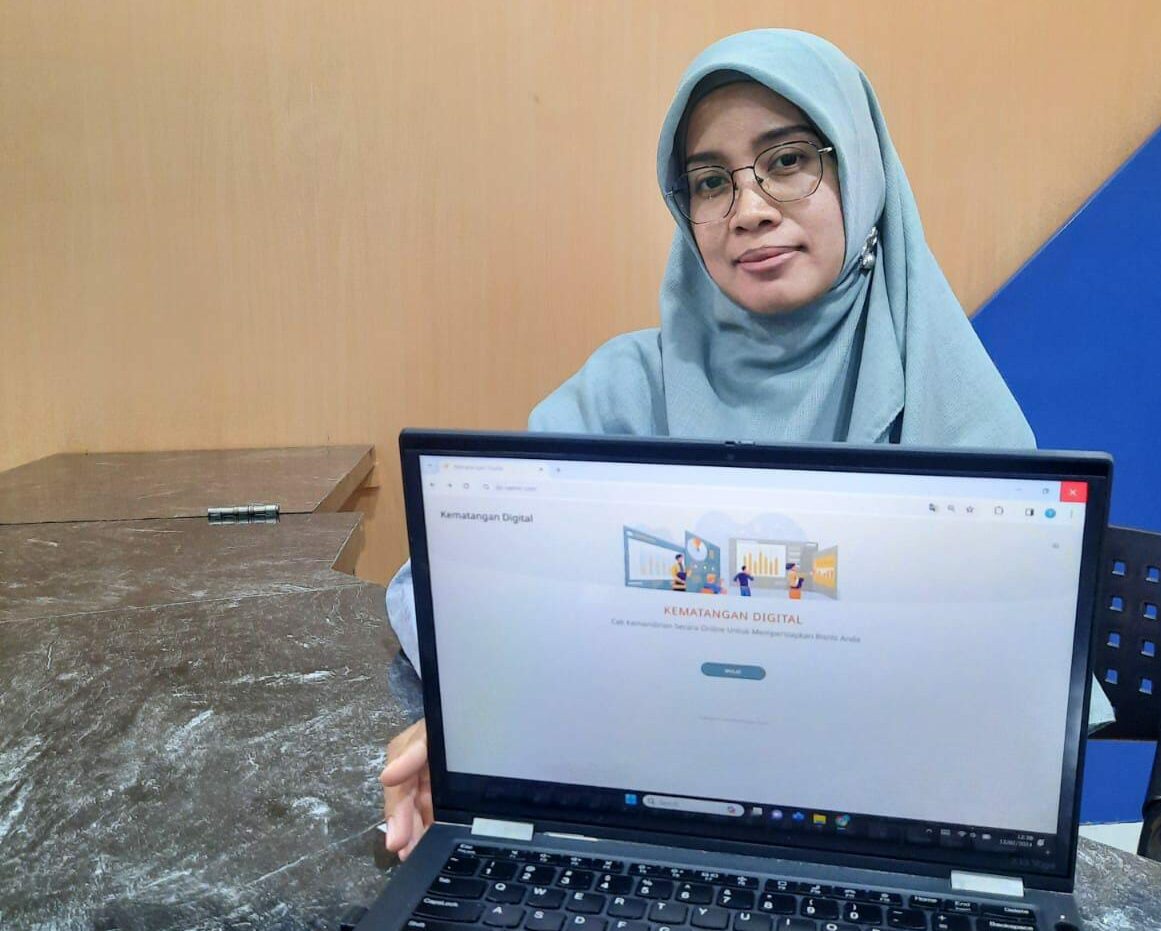
|
Getting your Trinity Audio player ready...
|
The rapid advancement of digital technology has revolutionised industries globally, and Indonesia is no exception. This digital transformation has the potential to significantly enhance organisational productivity and efficiency, but it also presents new risks and challenges. Dr Tining Haryanti, a graduate of the doctoral programme in Information Systems at the Institut Teknologi Sepuluh Nopember (ITS), has researched to explore innovation as a means to boost digital competitiveness in Indonesia.

Despite boasting the highest internet penetration in Asia, Indonesia currently ranks 51st out of 63 countries in terms of digital competitiveness. Recognising this gap, Indonesia aims to improve its digital standing. “This research was conducted to provide input for the government’s strategy for addressing digital challenges and elevating its digital ranking,” explained Tining.
Tining’s dissertation, titled “Enhancing Digital Competitiveness in Indonesia through the Development of a Grand Design and Digital Maturity Measurement Application Based on General System Theory (GST),” introduced a framework and application aimed at enhancing Indonesia’s digital competitiveness. The primary focus of her research is to comprehensively understand the various dimensions and measurement tools that influence the success of digital transformation in Indonesia.
In her research, Tining also delved into generating proposals through exploration based on a GST perspective. “This is intended to create a deeper understanding of the system dynamics involved in digital transformation,” she remarked.
Tining’s research was comprehensive, involving multiple sectors such as education, manufacturing, finance, healthcare, and government. She believes that digital transformation across various sectors is crucial for enhancing Indonesia’s digital competitiveness and thus warrants direct involvement. “We even engaged with stakeholders from various cities in Indonesia, including Surabaya,” explained Tining.
Enhancing digital competitiveness in Indonesia requires a multifaceted approach. Improving digital infrastructure and expanding access to high-speed internet are crucial steps. Creating a supportive regulatory environment that fosters innovation and protects digital rights is also key.
Through her research, Tining identified seven dimensions and 32 sub-dimensions that pose obstacles to digital transformation in Indonesia. These dimensions encompass various aspects such as technological infrastructure, digital skills, regulatory frameworks, cultural attitudes, organisational structures, cybersecurity, and access to digital services. Tining’s work also highlighted the complexity of the challenges facing Indonesia’s digital transformation efforts, which span a range of issues from deeply ingrained cultural factors and governmental policies to organisational dynamics and cybersecurity threats.
One of the key findings of Tining’s research was the significant impact of cultural factors on Indonesia’s digital transformation journey. Cultural norms, values, and attitudes towards technology can profoundly influence the adoption and success of digital initiatives. Tining emphasised that addressing these cultural challenges is paramount to advancing digital transformation efforts in Indonesia. She argued that efforts to promote digital literacy, change cultural perceptions of technology, and foster a culture of innovation are essential for overcoming these challenges.
Moreover, Tining’s research underscored the importance of governmental policies in shaping the digital landscape in Indonesia. Government policies can either facilitate or hinder digital transformation efforts. Tining highlighted the need for policies that promote digital innovation, protect digital rights, and create an enabling environment for digital businesses to thrive. She also emphasised the importance of collaboration between the government, private sector, and civil society in driving digital transformation forward.
Organisational dynamics were another area of focus in Tining’s research. She identified issues such as organisational resistance to change, a lack of digital skills within organisations, and inadequate digital infrastructure as key challenges. Tining stressed the importance of organisational leadership and culture in driving successful digital transformation. She suggested that organisations need to invest in training and upskilling their workforce, adopt agile and flexible organisational structures, and prioritise digitalisation efforts to overcome these challenges.
Cybersecurity emerged as a critical concern in Tining’s research. She highlighted the increasing threat of cyberattacks and data breaches as major challenges for Indonesia’s digital transformation. Tining emphasised the need for robust cybersecurity measures, including the implementation of best practices, regular security audits, and awareness programmes to mitigate these risks.
One of the key contributions of Tining’s research is the development of a design comprising 62 proposed digital activities. This framework offers strategic direction covering digital infrastructure, regulatory policies, the development of skilled human resources in technology, and the promotion of inter-sector collaboration. Tining also introduced a digital maturity measurement application that can provide a detailed understanding and monitor progress in achieving digital maturity.
Tining envisioned that the findings of her research would be promptly adopted and implemented by industries in Indonesia. However, she acknowledges that her research only scratches the surface of the challenges of digital transformation in Indonesia and encourages further development. “The results of this research are open to adaptation for further research to produce even better solutions,” she concluded.
















